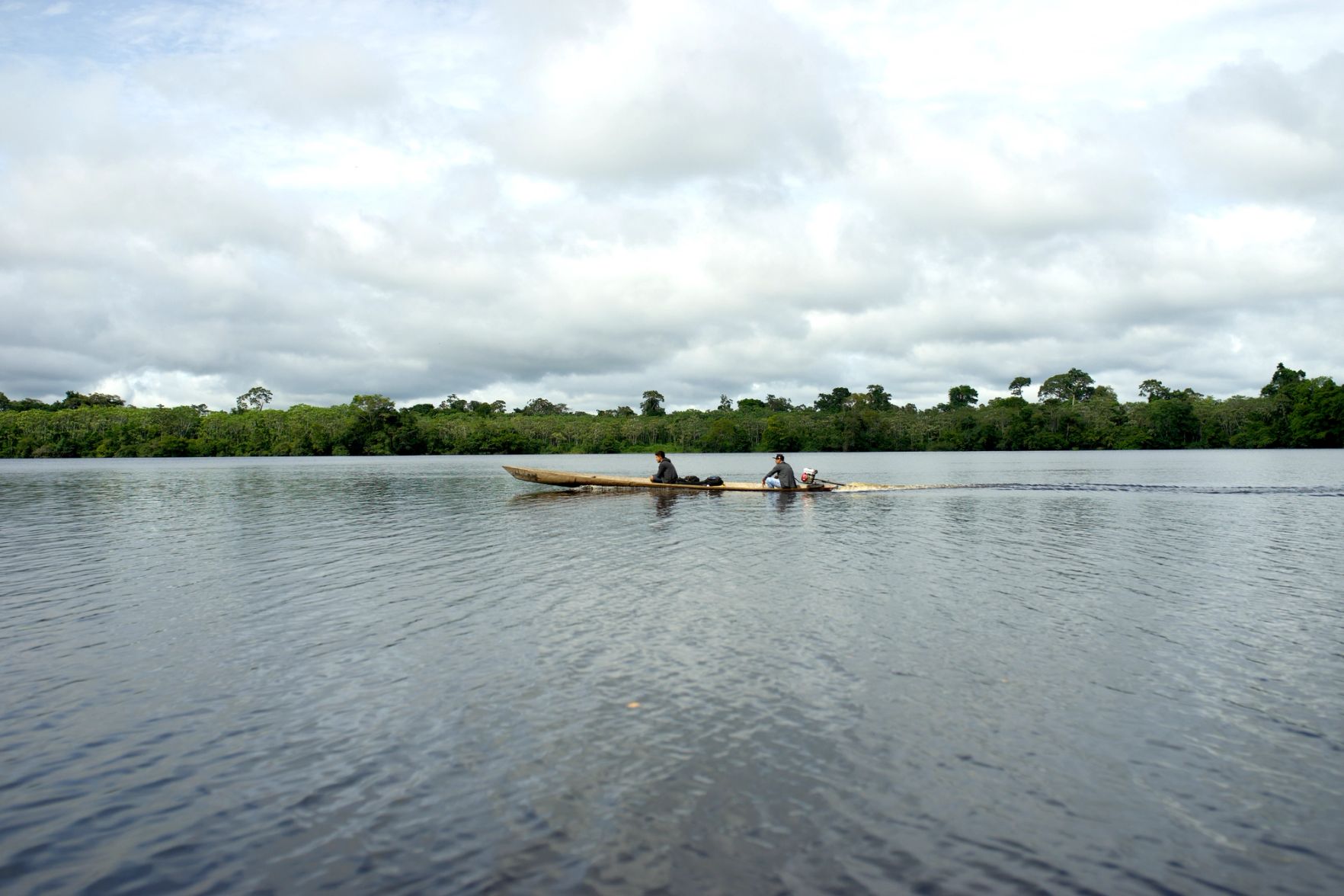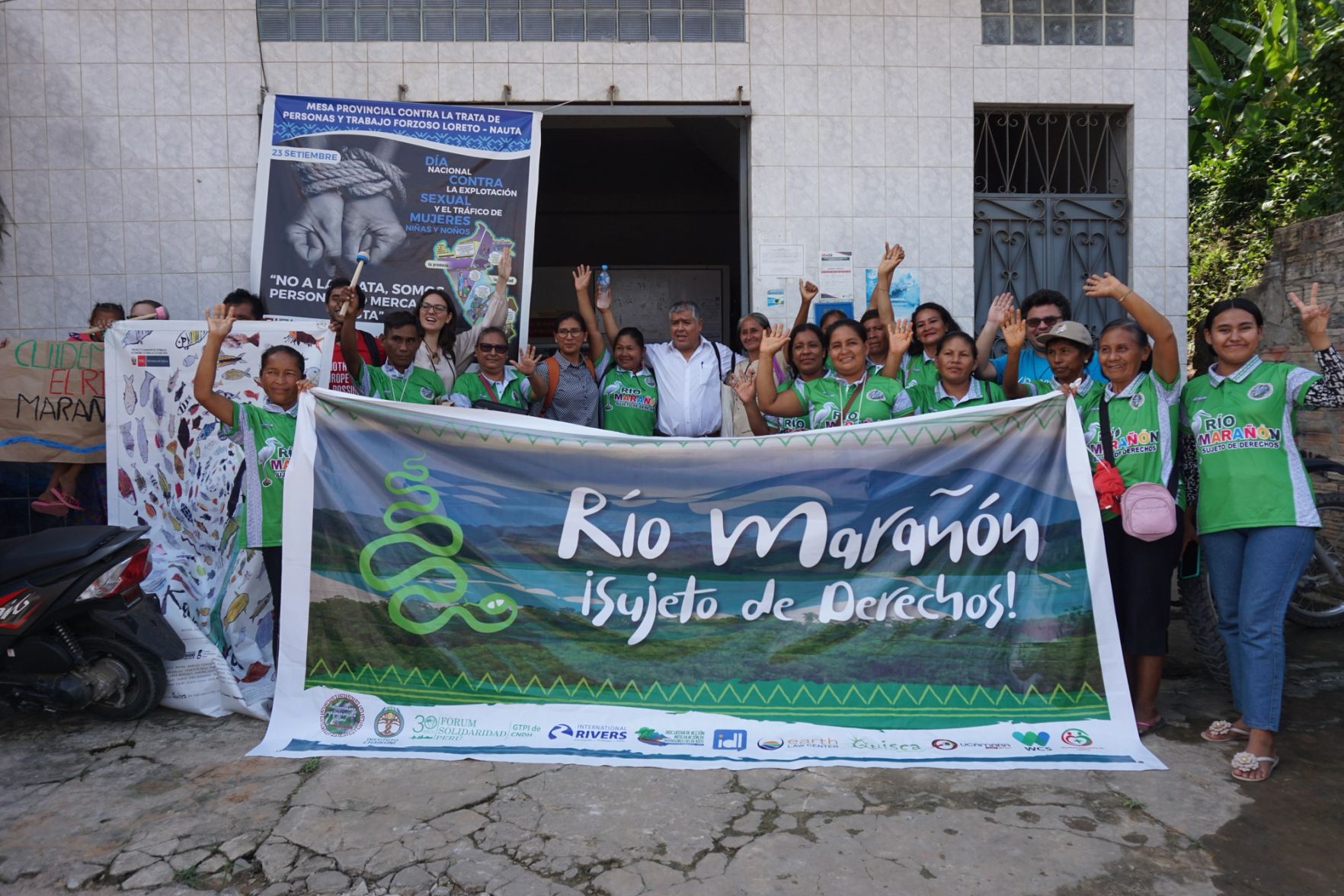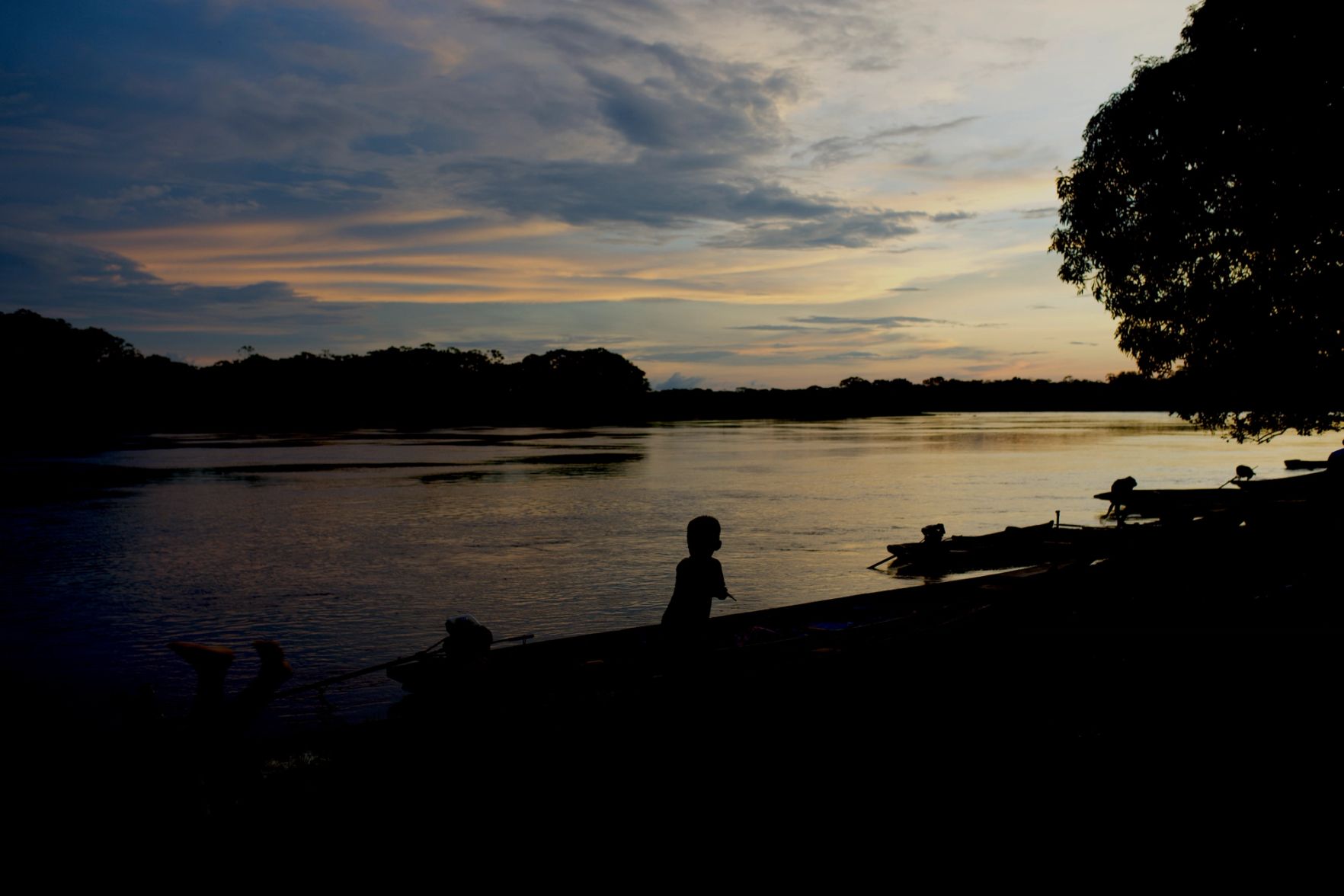By
On Tuesday, March 19, news spread worldwide. In a historic decision, the Peruvian Mixed Court in Nauta, a first instance court in the Peruvian legal system, granted rights to the Marañón River and its tributaries(1), and designated the Peruvian State and indigenous organizations as its protectors.

The Marañón river is one of Peru's most significant rivers. It originates in the Andes and spans some 1,800 kilometers down to the Amazonian lowlands, ultimately merging with the Ucayali River to form the Amazon River. However, despite its importance, it has been adversely affected by infrastructure projects, illegal mining, and oil spills for decades.
This reality led to the Kukama women's federation Huaynakana Kamatahuara Kana to initiate legal action against the Peruvian state in 2021, seeking recognition of the Marañón River as a subject of rights. Today, three years later, the verdict of this lawsuit stems us optimistic for the defense of the Marañón and water sources in Peru in general.

What does it mean to recognize the Marañón River as a rights holder?
The ruling recognizes the Marañón River as a rights holder. Granting rights to the Marañón River represents a fundamental acknowledgment that it has an intrinsic value. The verdict acknowledges that the river—integral to nature—holds significance beyond its utility as a resource for humans. Rather than viewing nature merely as a collection of resources for human use (an anthropocentric perspective), it is valued as an entity unto itself (an ecocentric perspective).
Another significant aspect is the recognition of humans' place within nature and our right to a healthy environment. The lives, health, and future of people are intimately linked to nature. Events such as droughts, floods, or changes in climate profoundly affect human lives. Thus, we also have a responsibility to preserve nature.
A third aspect that is noteworthy is that the sentence acknowledges the river's cultural significance for indigenous peoples. The Kukama people are also known as "river people" because their culture, worldview, and way of life are deeply intertwined with the river; according to their cosmovision, their ancestors return to live in the river in their afterlife. Recognizing this implies respecting the river's sacred dimension from an intercultural perspective.

The ruling marks just the beginning
The acknowledgment of nature's rights is a growing global movement. Although the ruling has already been appealed by the defendants, it has started to draw attention to the importance of reevaluating our relationship with nature and the steps we can take to contribute to its protection. Furthermore, it sets a significant precedent for the recognition of rights for other rivers — and nature in general — in Peru.
However, granting rights to the Marañón River does not imply its automatic protection. The process and legal battle will be long. If a final ruling is issued, indigenous organizations, which would be considered together with the Peruvian state as protectors of the river, will take on the challenging task of ensuring compliance with this ruling.
At Chaikuni, we understand the significance of this victory, although still partial. Through our years of supporting indigenous organizations in the Loreto region in the Peruvian Amazon, we have witnessed the challenges of this struggle. We know how difficult it is to draw attention to events that occur in such remote places, and that sometimes garner more interest internationally than nationally. We remain committed to continuing our support and collaboration with the women from Huaynakana, as well as the numerous local, national, and international allies who have joined this campaign.

-
(1) Rights recognized for the Marañón River:
- Right to flow to ensure a healthy ecosystem;
- Right to provide a healthy ecosystem;
- Right to flow freely without pollution;
- Right to feed and be fed by its tributaries;
- Right to biodiversity;
- Right to restoration;
- Right to the regeneration of its natural cycles;
- Right to the conservation of its structure and ecological functions;
- Right to protection, preservation, and recovery;
- Rights that are to be legally protected by the State, as they are an important part of the fundamental rights of every human being and our future generations, representing life, health, and one of our basic needs for survival.

